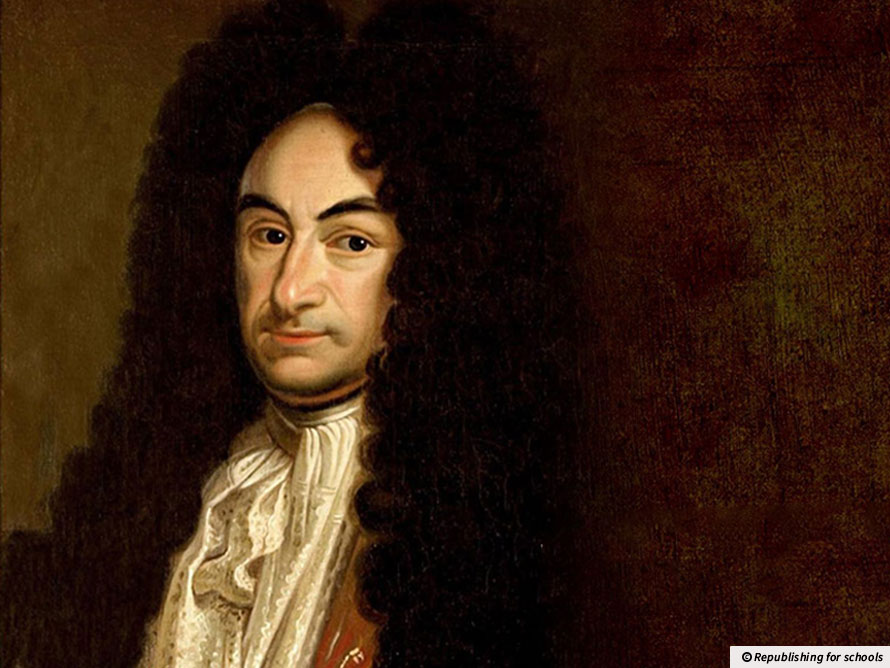Should this make us unhappy? People have long speculated about the existence of other worlds similar to ours. Now quantum mechanics suggests that this could really be true.
Parallel universes are likely says physics
 Multi-talented: Leibniz was also a mathematician who helped develop calculus.
Multi-talented: Leibniz was also a mathematician who helped develop calculus. Glossary
Scenario - An imaginary situation. The word was originally Italian and referred to the plot of a stage drama.
Quantum physics - The study of matter and energy on the atomic and subatomic level.
Photons - The elementary particle of electromagnetic radiation and the basic unit of light. The LHC has two-photon beams travelling in opposite directions.
